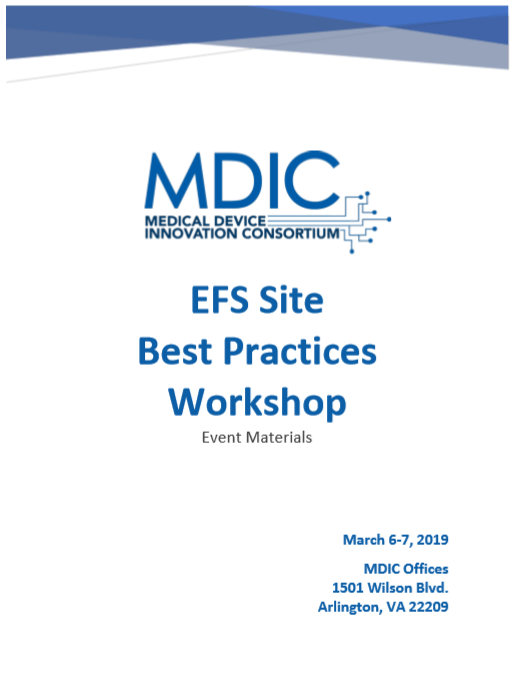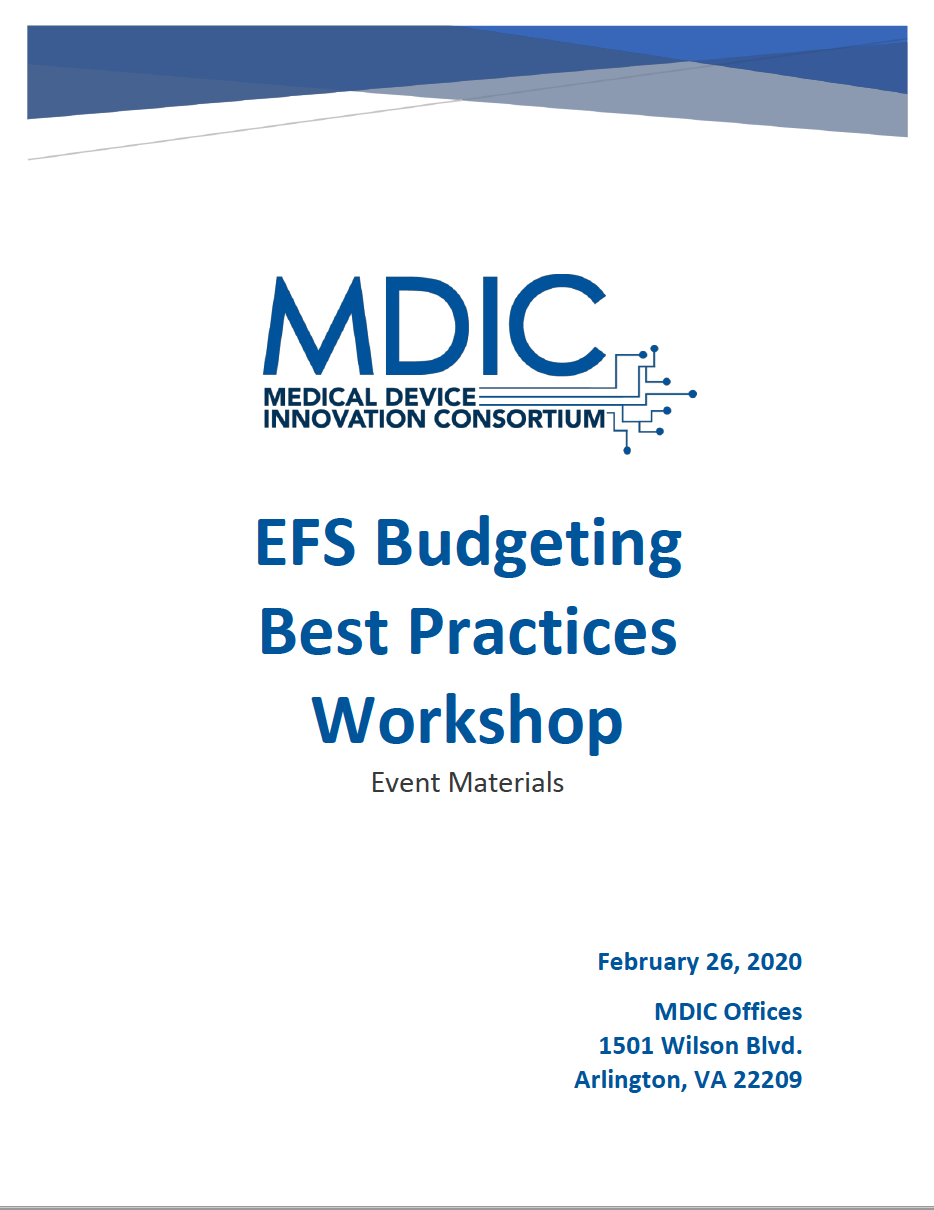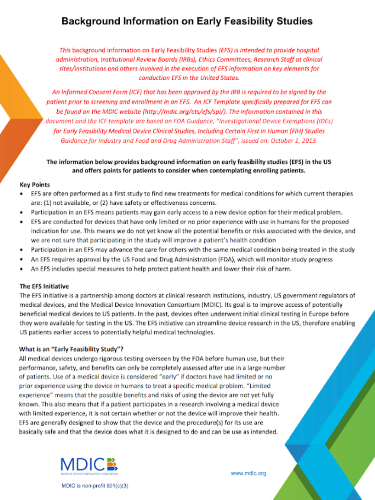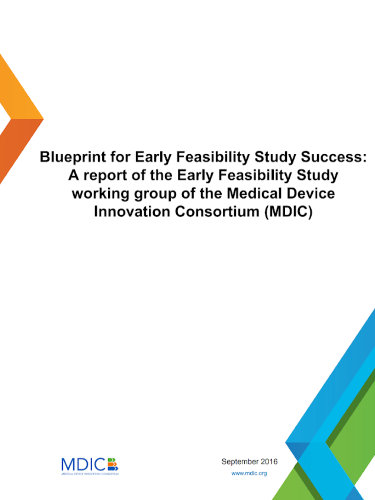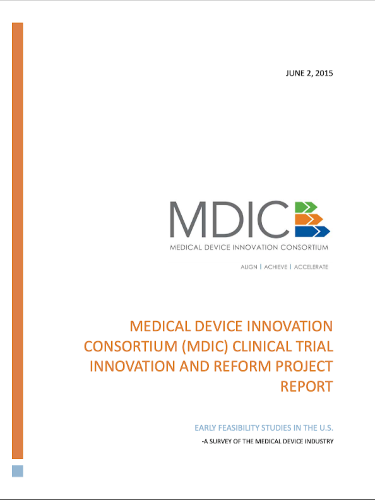Overview of Program:
An Early Feasibility Study (EFS) is a small clinical study designed to gain early insights into an innovative medical technology during the development process, before starting a larger clinical trial. An EFS often serves as a critical step in device innovation.
Although conducting an EFS is optional, EFS handle facilitates direct and interactive collaboration between FDA, sponsors and innovators in the earliest product lifecycle stages. Benefits of EFS include first-in-world access to potentially beneficial medical devices to patients in the US. They also familiarize regulatory review teams and care providers with the technology earlier in the product development process, applying a learn-as-you-go approach.
EFS provide the ability to justify doing the right testing at the right time and promote a more streamlined Clinical Testing (see details in Appendix). Capturing EFS data that is relevant to the US population and therefore directly supportive of subsequent US clinical studies (e.g. Pivotal, Post-Market, etc.)
Historically, feasibility studies have often been conducted Outside of the United States (OUS) due to real or perceived resource constraints/requirements (costs and time) associated with US study conduct. When medical technology developers prioritize conducting OUS feasibility and pivotal clinical studies over US studies, the relevant technologies are delayed in reaching US patients, and delayed in providing clinicians with hands-on experience using the technology.
MDIC’s work within the EFS program includes tracking EFS performance metrics, and developing tools and best practices for EFS sponsors and clinical researchers alike. In combination, these efforts are anticipated to drive overall EFS efficiency and support continuous assessment of EFS efficiency and effectiveness for US patients.


